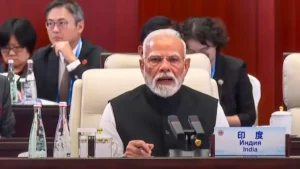‘First in four decades’: Why Sri Lanka general strike matters
Analysts say Thursday’s nationwide strike was the first since a similar call given by the island’s trade unions in 1980.
Colombo, Sri Lanka – Millions of Sri Lankan workers held a nationwide general strike on Thursday to demand the resignation of President Gotabaya Rajapaksa and the government controlled by his powerful family amid the island’s worst economic crisis in history.
Banks were closed, businesses shut and public transportation halted as nearly 1,000 trade unions across the island nation organised the strike, with workers from both public and private sectors attending.
In the capital Colombo, thousands of trade union members joined protesters already camping in front of the president’s office for nearly three weeks, demanding the government’s removal.
But the general strike marked the first time the country of 22 million residents was brought to a standstill since mass protests erupted late last month.
“Life has become hard in this economic crisis. Gas, electricity, food and bus fares are all overpriced at the moment,” a government worker, who wanted to stay anonymous, told Al Jazeera.
With five members in her family, she says she finds it hard to provide for them with her salary which has stayed the same despite a steep hike in prices of food, medicines and fuel.
“Last year, the price of rice used to be around 99 rupees. It is currently at 215,” she said.
Sri Lanka does not have enough foreign currency to import essential food items, fuel and medicines after the coronavirus pandemic, rise in oil prices due to the Ukraine war, tax cuts by the government and declining foreign currency reserves crippled its economy.
Protesters also accuse the powerful Rajapaksa clan – which has dominated the island’s politics for nearly two decades – of mismanaging the economy.
“We voted for Gotabaya Rajapaksa but he has destroyed our country,” Ruchira Ashan, a 27-year-old mechanic working at Colombo’s dockyard, told Al Jazeera.
Ashan said he had taken leave from his office to join the strike, which also saw doctors and nurses protesting outside hospitals and clinics during their lunch break.
“A lot of people influenced me and my family to vote for the Rajapaksas. I feel responsible,” said Binali Wijekone, a 21-year-old trainee at a bank in Colombo.
Comparisons with 1980 strike
Political scientist Jayadeva Uyangoda said the general strike was the first Sri Lanka had witnessed since a government crackdown on the trade union movement in 1980.
“This is the first time in four decades that the Sri Lankan trade unions have come together to launch a general strike,” he told Al Jazeera.
Uyangoda was referring to a similar general strike called by Sri Lanka’s trade unions 42 years ago to demand an all-round monthly pay rise of 300 rupees, restoration of food subsidies and the withdrawal of “undemocratic and anti-trade union measures” taken by the government.
In response, the then President J R Jayawardene – a strongman politician who was pushing for a “liberalisation” of the island’s economy – mobilised the armed forces, imposed a nationwide state of emergency and declared the strike illegal, triggering violent protests.
Experts said the country is witnessing a similar rise in people’s anger against the government.
“Jayawardene crushed the 1980 strike but today the trade unions have fixed their mistakes and are ready to move into the future,” Venerable Tampitiye Sugatananda, a 32-year-old Buddhist monk and chief secretary of the Joint Health Workers Union, told Al Jazeera.
“Since 1980, a lot of trade unions were formed by political parties, but in the past couple of years, this (trend) has shifted. Working-class people’s struggles have taken prominence and today’s event has only reinforced this trend.”
The island’s trade unions have threatened to go on a longer strike from May 6 if the president and the government do not resign.
“If the workers tell the president and the prime minister to leave, then they should leave by all means,” Sugatananda told Al Jazeera. “We need a response by the state to today’s action. If not, there is no choice but to continue for months.”
He spoke as protesters at the march in Colombo held banners saying “They Don’t Really Care About Us” and “Stop Repression”, while others made speeches and shouted slogans in front of the president’s office.
Sri Lankan lawyer and activist Balachandran Gowthaman said he had “not seen an event subscribed by unions of various persuasions and such a comprehensive display of force” since 1980.
“The discipline with which the private sector and the public sector stepped out without too much persuasion and too much complications indicated that all sectors are devastated by the economic crisis and want the current administration to be held responsible,” he told Al Jazeera.
V T Gunatunga, a 60-year-old member of the All Island Local Government Labour Union, said he travelled from Panadura to attend the protest in Colombo and support the young demonstrators.
“Well, 6.9 million may have voted for them (the Rajapaksas), but we are all here to send (the Rajapaksas) home,” he told Al Jazeera, referring to claims the powerful clan got 6.9 million votes in the 2019 elections.
“I could die but there needs to be a country for future generations and that is the reason I am on the streets,” said Gunatunga.










